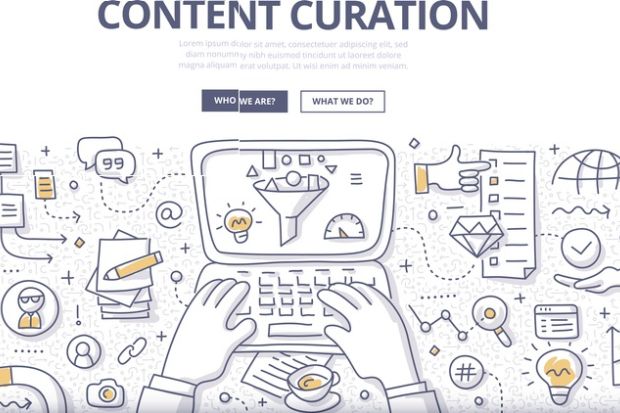这场新冠疫情与其说是变革的来源,不如说是推动了几十年来一直在讨论的事态发展的催化剂。例如,尽管内容变得如此容易获取,以至于任何学生只要使用浏览器就可以访问几乎任何主题的任何内容,但我们还是需要在疫情封锁下才能面对这样一个问题:这对大学教学意味着什么?
确实,许多艺术家都在努力让自己的娱乐产品更赚钱,而一些新闻媒体也是出于同样的原因而需要付费获取。然而,只要你想要,新闻和许多娱乐仍然是免费的。在教育赞助商的坚持下,信息丰富的内容——艺术、书籍、手稿、研究——继续在网上免费大规模地传播。大学本可以通过保护所有内容并反对所有开放获取倡议来抵制,但现在已经为时已晚。
如果说内容免费令人震惊,那是因为我们这些大学里的人认为我们的主要目的是提供内容:围绕着内容制定商业模式,并将自己的声誉与之挂钩。讲师们认为,他们在课堂上的表现对学生日后的成功至关重要,尽管大多数人可以从阅读书目中获得更多。
说起校园经历,不论是阅读图书馆藏书、与同学交流,还是参加学生社团,这些都没有进入我们的商业计划。我确实知道在美国有一所大学对本科经历的每一个内容都明确收费,但这是一个极端的例子。
此次疫情表明,学生们把没有经历过校园生活的学费视为劣质品,从而引发了学费打折的呼声。尽管如此,要告诉学生们(还有政府),文凭、人脉和经历是他们购买的全部或大部分东西,需要有自杀式的勇气。
真的吗?在可预见的未来,无论内容或在线教学会发生什么,在任何教育合同中,都必须为学生做3件事——而机构可能会合法地收取这些费用。
首先是设计课程大纲和支撑整体教学资格的评估。这是极为可扩展的,从教学大纲设计和评估设计的意义上说,无论这门课有5名还是5000名学生,你都必须进行这些活动。虽然有比我们目前使用的更好的方法,但评分评估的可扩展性较差。目前,在大多数机构中,只有学者才能给分数:因此,他们的时间很宝贵,需要更好的引导。
第二个不可减少的任务是策划内容:找到好的材料,并训练学生发现和评估自己的内容。有一个问题是,基于免费内容的教学大纲在多大程度上可以被贴上标签,并宣称其溢价充足值得付费,但管理技能将是所有终身学习的核心技能。即便如此,我们必须更有效地安排学习材料,为这里讨论的其他人际交往腾出时间。一旦学生能够接触到经过策划的材料,他们可以在相对较少的支持下进行探索。
第三件需要人力投入的事情是最广泛意义上的指导。这包括演示学科如何塑造实践,让学生不要简单地吸收内容或(更糟糕的是)专注于分数,讨论并指导他们综合知识适应新情况。所有这些都需要一个人来塑造、指导、诱导和挑战。
我开始意识到,内容免费的想法太激进了,以至于大多数人都无法真正理解。一些人认为,即使他们“得到了”,其他人也不会得到。然而,迟早会有人这样做——他们会提供更好、更有趣的教育。他们将改变整个行业。
在经历了从合同研发到领先的学术研究项目的创新行业生涯后,我知道新想法产生改变是多么困难。几年前,我和一位著名放射科的主任聊了聊他从使用x射线胶片的传统放射科到制作可共享图像的数字放射科的历程。有两点让我印象深刻:首先,当我问他为什么不聘请专家帮忙时,他回答说:“有时你必须投入自己的血汗。”其次,在意识到他的同事总是找借口偷偷使用旧设备后,他想出了一个完美的解决方案——切断插头。
这两个要点都与数字学习有关。现有的专业知识未经检验,尽管疫情有可能切断插头,但许多学者认为意外已然发生了。
无论体制上的阻力如何,现在是时候切断插头了。学术界必须拒绝提供更多内容。这几乎毫无价值,但他们的时间——如果花在更好的方式上——近乎无价。
特里·杨(Terry Young)是伦敦布鲁内尔大学(Brunel University London)的荣誉教授,也是达切特咨询公司(Datchet Consulting)的创始人。他曾在GEC和Marconi工作,后于2001年至2018年任布鲁内尔大学医疗系教授。
本文由陈露为泰晤士高等教育翻译。





